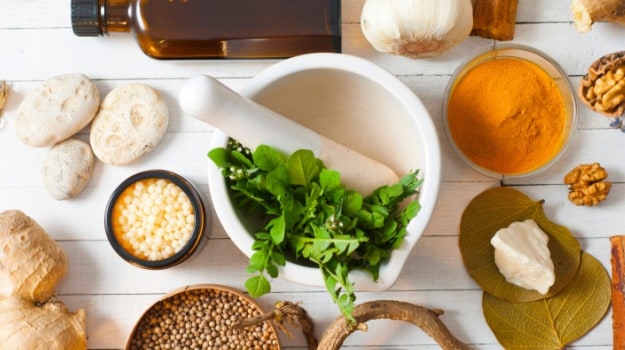Digestion plays a crucial role in our body’s good health and well-being. The process of digestion is not just about breaking down food and providing our body with the required nutrients. A good digestive system is also the key to a long and disease-free life. Many experts believe that the secret to a good life actually lies in your gut. It is therefore essential that we take care of our digestive health by eating right, providing the body with all its requirements and keeping the digestive fire alive, known as ‘agni’ in Ayurveda.According to authors Amadea Morningstar and Urmila Desai of The Ayurvedic Cookbook, they state in their book, “Agni translates in Western terms into that ability of all the digestive organs to be lively, effective and coordinated in function when given an appropriate amount of food. This “appropriate amount of food” is an important part of the effective digestive process. Too much food can act like sand on fire, dousing agni, and demanding more work of it than it can realistically deliver. Too little food can starve agni, like expecting a fire to burn brightly with but a few twigs to fuel it.”In today’s time, we resolve to all sorts of diets to lose weight and eat healthy. But what you really need to do is listen to your body. It will tell you when it is hunger and when it has had more than its fill of food. Good digestion can be achieved by following healthy eating habits such as avoiding excess of heavy food, chilled or refrigerated food, swallowing food hurriedly rather than chewing it properly, irregular eating patterns, so on and so forth.
 Spices for good digestion; Photo Credit: iStock
Spices for good digestion; Photo Credit: iStock
How to Balance Agni
Most often people suffer from insufficient agni, leading to problems such as gas, constipation, sluggish digestion, difficulty in walking in the morning, among others. Excessive agni could cause a burning sensation in the digestive tract, diarrhea, irritability, etc. Following a healthy eating pattern is important to balance your agni, as well as choosing the right kind of foods in your diet. Try and have your meals at regular timings daily. If you have one big meal for the day and then skip other meals, it will hamper agni. You also need to know the right food combinations for maximum absorption of nutrients. https://food.ndtv.com/opinions/health-tip-food-combinations-for-a-balanced-diet-695676
Ayurvedic Spices to Boost AgniSpices come with many health benefiting properties besides lending aromatic flavours to your food. Here are some spices that are known to boost digestive power (agni) -1. Cumin: More commonly known as jeera in India, these seeds are often used as a home remedy to bring relief from digestive problems like gas and bloating. It also has anti-inflammatory properties that reduce stomach pain and discomfort.2. Turmeric: Almost every Indian dish is cooked with a little sprinkling of haldi (turmeric) in it. It’s not just to do with lending colour to the dish, but also adding healing properties. Turmeric is an antioxidant, anti-viral, anti-bacterial, anti-fungal, anti-carcinogenic, anti-mutagenic and anti-inflammatory spice.
 Turmeric for glowing skin and health; Photo Credit: iStock
Turmeric for glowing skin and health; Photo Credit: iStock
3. Ginger: The warming spice has excellent digestive properties, pain-relieving chemicals and immunity boosting power that protects from cough and cold. It is therefore commonly used in winters in curries, stir-fries and even tea.4. Fenugreek: Also known as methi seeds, it is rich in fiber and antioxidants, acts as a natural digestive, helps in flushing out harmful toxins from the body, and its lubricating properties help soothe the stomach and intestines.
 fenugreek seeds remove toxic acid from stomach; Photo Credit: iStock 5. Cardamom: Due to its strong aroma, it helps in activating the secretion of enzymes effective for digestion especially if consumed after heavy meals. It aids in curing stomach problems like indigestion, gas and constipation. Cardamom contains chemicals that are known to increase the movement of food through the intestine.
fenugreek seeds remove toxic acid from stomach; Photo Credit: iStock 5. Cardamom: Due to its strong aroma, it helps in activating the secretion of enzymes effective for digestion especially if consumed after heavy meals. It aids in curing stomach problems like indigestion, gas and constipation. Cardamom contains chemicals that are known to increase the movement of food through the intestine.
 Cardamom prevents constipation
Cardamom prevents constipation
6. Clove: Clove or laung is an aromatic spice of which 60-90 percent constitutes eugenol oil. This oil is known for its antioxidant, antiseptic, anesthetic and astringent properties. In Ayurveda, cloves are said to be kaphahar which means that they have the ability to balance the kapha dosha. Being carminative in nature, it prevents the formation of gas in the gastrointestinal tract or helps with its expulsion.7. Cinnamon: Cinnamon is known to improves digestion and absorption of nutrients. It is an anti-bacterial and heals prevent infections in the GI track
 Cinnamon powder; Photo Credit: iStock
Cinnamon powder; Photo Credit: iStock
8. Black Pepper: The piperine in black pepper eases digestion and stimulates the enzymes in the stomach, which then helps to digest proteins in food.These spices are great for sparking the digestive fire, burning toxins and warding off signs of indigestion, such as gas and bloating. They can be added to any meal such as soups, stews, smoothies, meat dishes, stir fries and curries.
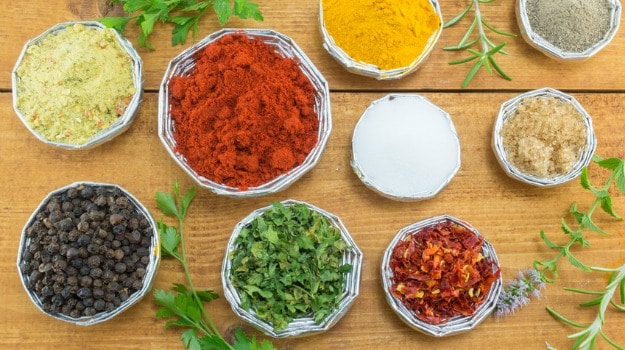 Spices for good digestion; Photo Credit: iStock
Spices for good digestion; Photo Credit: iStockHow to Balance Agni
Most often people suffer from insufficient agni, leading to problems such as gas, constipation, sluggish digestion, difficulty in walking in the morning, among others. Excessive agni could cause a burning sensation in the digestive tract, diarrhea, irritability, etc. Following a healthy eating pattern is important to balance your agni, as well as choosing the right kind of foods in your diet. Try and have your meals at regular timings daily. If you have one big meal for the day and then skip other meals, it will hamper agni. You also need to know the right food combinations for maximum absorption of nutrients. https://food.ndtv.com/opinions/health-tip-food-combinations-for-a-balanced-diet-695676
Ayurvedic Spices to Boost AgniSpices come with many health benefiting properties besides lending aromatic flavours to your food. Here are some spices that are known to boost digestive power (agni) -1. Cumin: More commonly known as jeera in India, these seeds are often used as a home remedy to bring relief from digestive problems like gas and bloating. It also has anti-inflammatory properties that reduce stomach pain and discomfort.2. Turmeric: Almost every Indian dish is cooked with a little sprinkling of haldi (turmeric) in it. It’s not just to do with lending colour to the dish, but also adding healing properties. Turmeric is an antioxidant, anti-viral, anti-bacterial, anti-fungal, anti-carcinogenic, anti-mutagenic and anti-inflammatory spice.
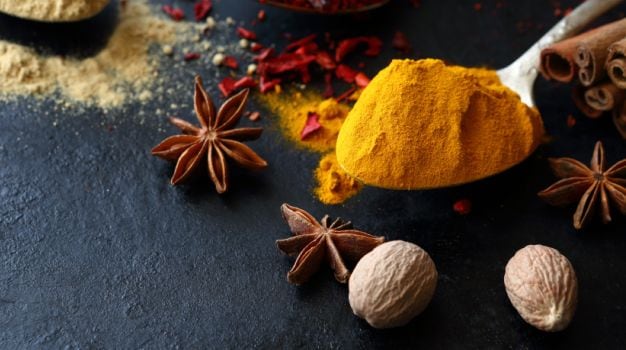 Turmeric for glowing skin and health; Photo Credit: iStock
Turmeric for glowing skin and health; Photo Credit: iStock3. Ginger: The warming spice has excellent digestive properties, pain-relieving chemicals and immunity boosting power that protects from cough and cold. It is therefore commonly used in winters in curries, stir-fries and even tea.4. Fenugreek: Also known as methi seeds, it is rich in fiber and antioxidants, acts as a natural digestive, helps in flushing out harmful toxins from the body, and its lubricating properties help soothe the stomach and intestines.
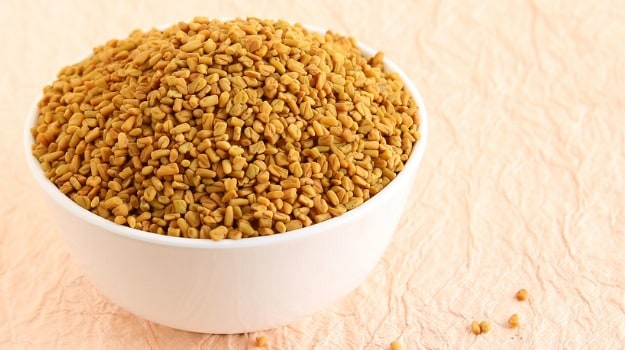 fenugreek seeds remove toxic acid from stomach; Photo Credit: iStock
fenugreek seeds remove toxic acid from stomach; Photo Credit: iStock 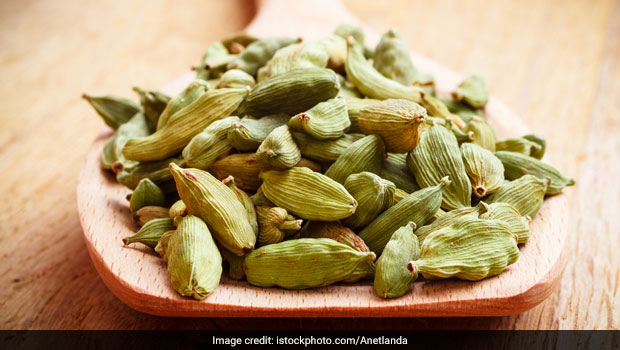 Cardamom prevents constipation
Cardamom prevents constipation6. Clove: Clove or laung is an aromatic spice of which 60-90 percent constitutes eugenol oil. This oil is known for its antioxidant, antiseptic, anesthetic and astringent properties. In Ayurveda, cloves are said to be kaphahar which means that they have the ability to balance the kapha dosha. Being carminative in nature, it prevents the formation of gas in the gastrointestinal tract or helps with its expulsion.7. Cinnamon: Cinnamon is known to improves digestion and absorption of nutrients. It is an anti-bacterial and heals prevent infections in the GI track
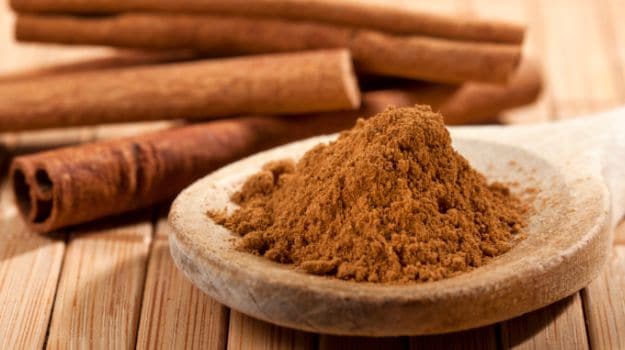 Cinnamon powder; Photo Credit: iStock
Cinnamon powder; Photo Credit: iStock 8. Black Pepper: The piperine in black pepper eases digestion and stimulates the enzymes in the stomach, which then helps to digest proteins in food.These spices are great for sparking the digestive fire, burning toxins and warding off signs of indigestion, such as gas and bloating. They can be added to any meal such as soups, stews, smoothies, meat dishes, stir fries and curries.
Advertisement








